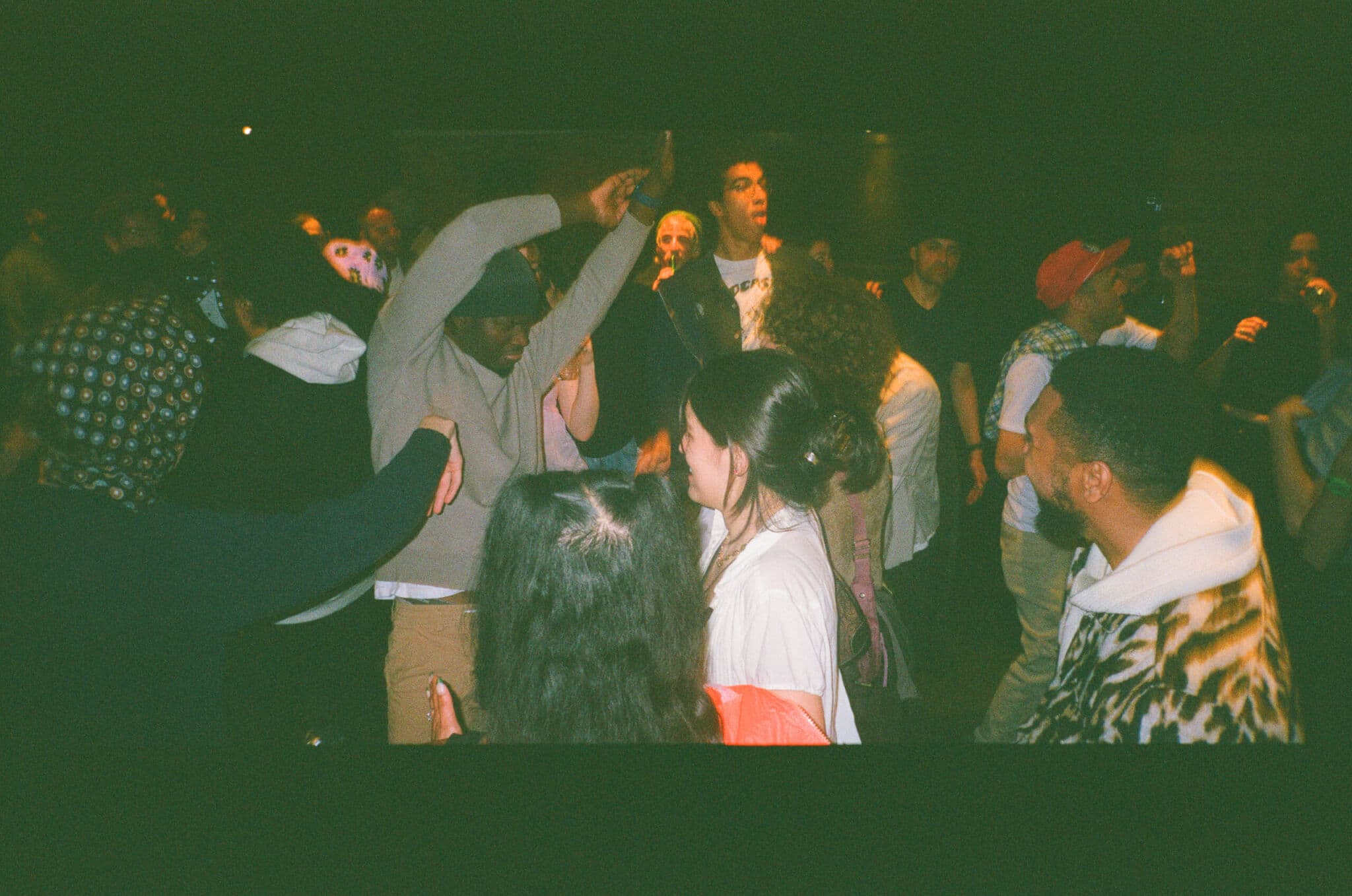Nightlife is a necessary part of any thriving arts scene. Whether it be dance nights, live music, kink, drag, or other late-night gatherings, parties are an important way for creative people to congregate and express themselves. When done right, nightlife builds community, sparks creativity, and instills a sense of belonging.
Crafting such parties is a creative practice in itself, combining grassroots organizing, production, and community engagement. Here in Boston, with no shortage of bureaucratic red tape, organizers are forced to get imaginative when assembling a proper nightlife experience. It’s this unwavering DIY spirit and tight-knit community ethos that sets Boston’s nightlife scene apart.
Despite efforts to foster a thriving nocturnal culture here, nightlife practitioners in Boston continue to face many issues concerning equity, accessibility, and affordability. Today’s challenges stem from drunk driving incidents in the 1980s (why happy hour is illegal in Boston today) and the ripple effects of the fatal fires at Cocoanut Grove (1942) and the Station nightclub (2003), which led to stricter laws and regulations to promote public safety and prevent future tragedies. These rules (though well-intentioned) have not evolved with the times or the needs of the local nightlife community and economy, especially in the wake of the COVID-19 pandemic. Caps on liquor licenses, extensive permitting requirements, strict zoning laws, and limits on business hours and public transportation are among the challenges that continue to create high barriers of entry for organizers and party-goers alike. Rather than cultivating a climate of cultural and creative expression, these mandates actively drive young people and creatives out of the city.
After years of the same stifling status quo, Boston nightlife is finally gaining some allies. Corean Reynolds, Boston’s first director of the newly formed Mayor’s Office of Nightlife Economy, kicked off her role in 2023 by gathering applicants for the Nightlife Initiative for a Thriving Economy (NITE) Committee. The group is made up of Boston residents, DJs, promoters, business owners, and other leaders who, in partnership with the City, will drive conversations on nightlife’s current challenges and rethink existing regulations and policies. Looking ahead, she aims to establish stronger relationships between nightlife economy stakeholders, business owners, and organizers and to connect folks to available resources. “The more people working on this, the more voices we uplift, the more we can use our collective power to push the needle and address these issues,” says Reynolds.
The Nightlife Lab at Design Studio for Social Intervention (ds4si) is another space to watch. “Our intention was to bring folks who touch different parts of nightlife together in conversation and co-imagine nightlife in Boston,” says Nohemi Rodriguez, art and creative placemaking lead at ds4si. For the Lab’s launch, ds4si hosted three sessions with twenty creatives in nightlife (primarily BIPOC and queer folks) to explore the challenges they’ve experienced as organizers and prototype different nightlife experiences they want to see here. “The hope is to keep iterating,” says Rodriguez.
For Issue 12, we invited both aboveground and underground organizers to share what goes into being a “party practitioner” in Boston and how this work builds community in a very real way. We also asked them to snap their own photos on disposable cameras to give us a glimpse of the diverse experiences they’re cultivating. Boston nightlife comes in so many different flavors, and the voices featured in this article are only a sampling—leaders from all corners of the city are carving out space for the communities and scenes that are underrepresented in mainstream nightlife here. Their events are so much more than just “partying”; they’re labors of love, testaments to creative collaboration, and essential to our city’s cultural fabric.































